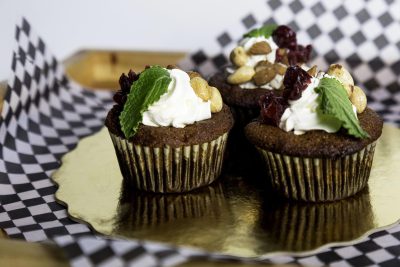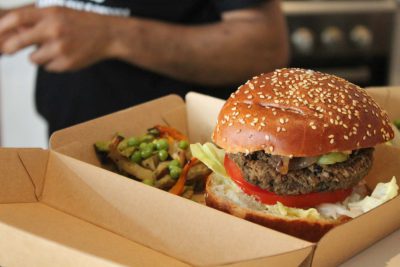Estimated reading time: 5½ minutes
Eggs may seem integral to baking but in fact there are ways to cook all your favorite recipes – from cakes and brownies to cookies and meringues – without using them at all.
Reasons You May Need To Replace Eggs
Aside from not liking eggs or not being able to find any at your local store, there are two main reasons why people choose to replace eggs in their baking: they are allergic to them, or they’re vegan.
Vegan Diet
Vegans don’t eat any animal products so no meat or fish, and no dairy or eggs. There are lots of reasons people choose to be vegan – for some it is about preventing animal suffering in farms and slaughterhouses. For others, the enormous impact on our planet is reason enough to opt out of supporting animal agriculture. And many more choose it because it is a healthy diet that has been shown to reduce the risk of many serious diseases, such as heart disease, type 2 diabetes and some cancers. All are excellent reasons.
Egg Allergy
In the US, up to 2 percent of children are allergic to eggs and although many grow out of the allergy as they get older, some people continue to have reactions throughout their lives. These can range from a mild rash to something far more serious – anaphylaxis, a life-threatening condition that affects breathing and can send the body into shock. More common symptoms include hives, vomiting, wheezing and stomach pain.
What Are Eggs Used For In Baking?
There are five main roles that eggs play in baking, and so different recipes require eggs for different reasons. They are:
Appearance
Eggs can help baked goods turn golden brown, which improves their appearance and prevents them looking anemic. This is why bakers often use an egg glaze on top of pastries and some breads.
Binding
Eggs bind together the other ingredients, so that they form a well-unified dough. Their stickiness helps them achieve this.
Flavor
The high-fat yolks in eggs give baked products a richness – just think brioche and challah bread.
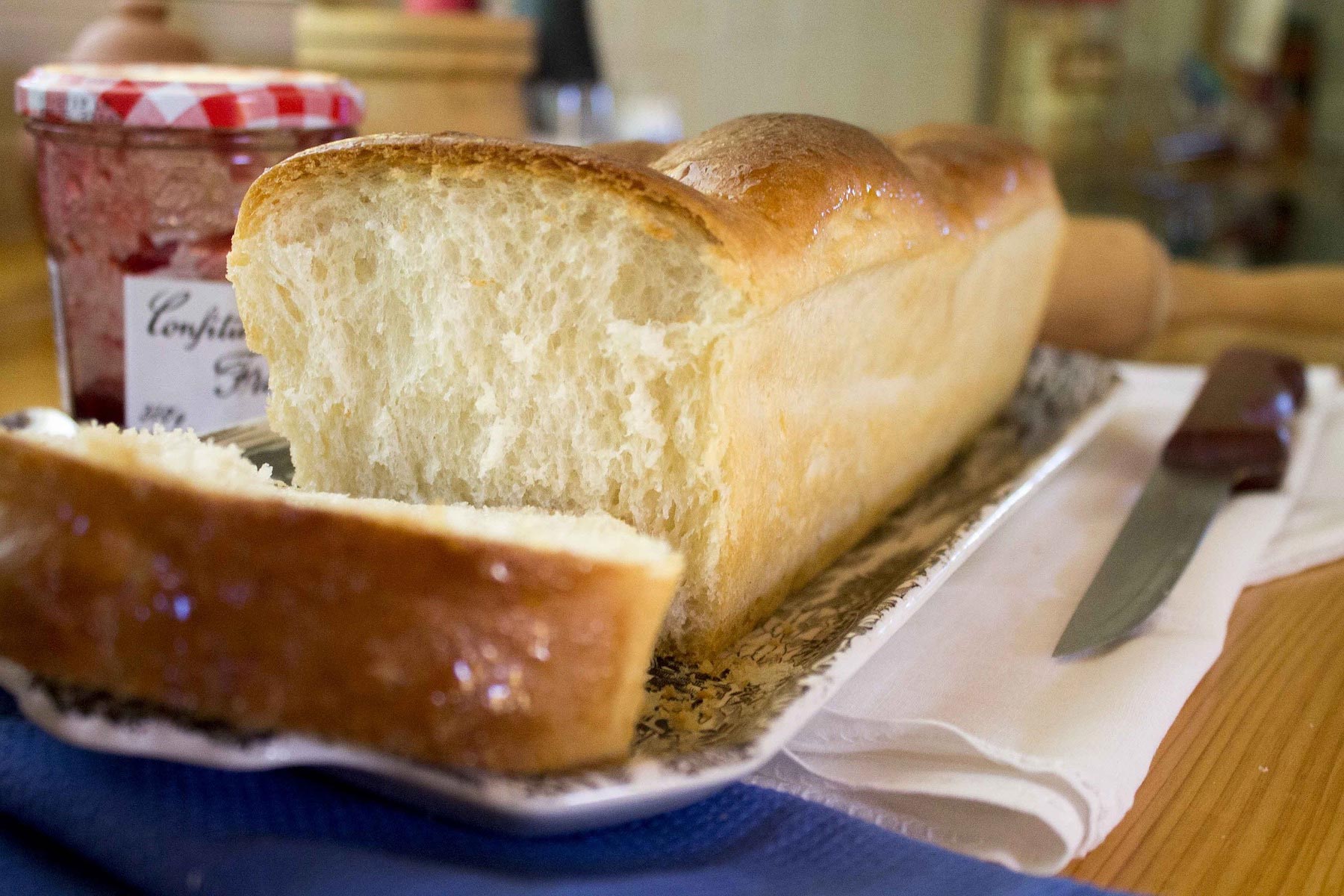
Leavening
This is the process that makes baked goods rise. Eggs can do this by trapping air that expands during heating, as with eclairs and profiteroles. But egg whites can also be whipped to create a much larger volume, such as in meringues.
Moisture
Finally, there is a lot of liquid in eggs, and this helps add moisture to the finished product, so that cakes are smooth and don’t crumble apart.
What Ingredients Can You Use To Substitute Eggs?
As eggs perform so many different functions in recipes, it is important to find the correct replacement for your recipe. Don’t be daunted by this however, as there are so many excellent replacements. Try these in your baking and you’ll never go back to using eggs again.
Agar-agar
Although this is derived from seaweed, agar-agar doesn’t add a fishy taste to your dishes, and it can be used in both sweet and savoury baking. It’s a natural gelling agent so can be used instead of gelatin, and works especially well in vegan cheesecakes.
Applesauce
This adds the moisture of eggs to a recipe and, as it is a bit sticky, it can help bind as well. The apple flavor will come through so it will need to be used in appropriate recipes. It’s particularly good in pancakes and cakes.
Aquafaba
Ah! The miracle that is aquafaba! This is the brine from inside cans of beans and, when whipped, it behaves just like eggs. It becomes pure white and flavorless making aquafaba perfect for making meringues.
Arrowroot Powder
This is from a high-starch tuber and, when mixed with a little water, adds moisture, structure and binds. It won’t help your goods rise, so baking powder may still be needed but try arrowroot in muffins.
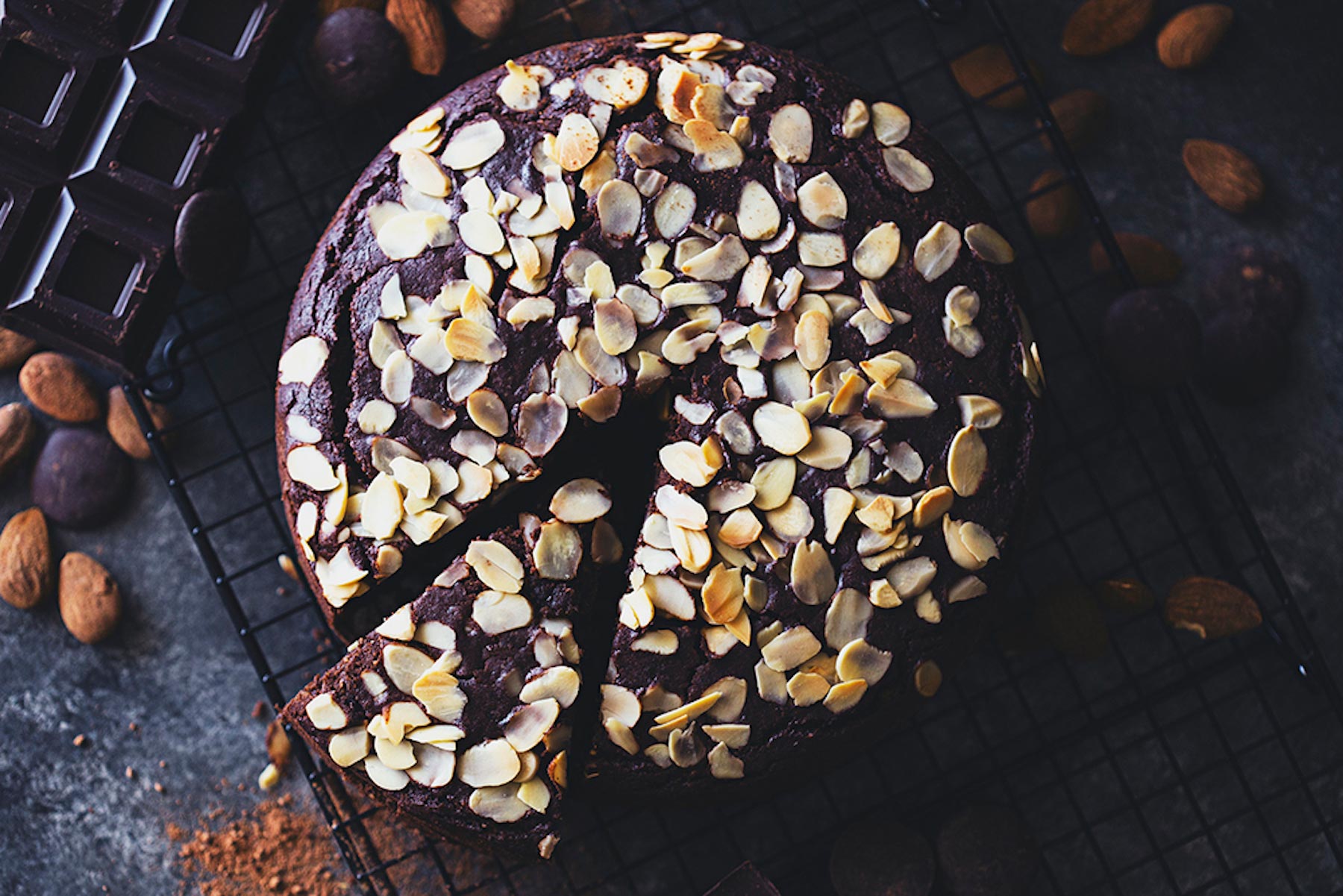
Banana
Mashed banana can add texture and moisture and will bind the other ingredients together. Its flavor will come through so use it wisely – cakes, brownies and pancakes are great options.
Canned Pure Pumpkin
This can be used to add moisture and will help bind the other ingredients together. Its strong color will come through, and there will be a hint of flavor, too, so it works well in breads and some cakes.
Carbonated Water
This simple egg substitute works brilliantly in muffins, as it adds moisture and helps them to rise. With no flavor, it can be used in sweet or savory recipes.
Chia Seeds
These little seeds take on a gel-like texture when mixed with some water, and work well as a binding agent. Try them in brownies and waffles.
Chickpea Flour
Also known as gram flour, this can be used to make dosa, frittatas and besan ka chilla, a delicious, protein-packed North Indian pancake.
Diet Soda
Like carbonated water, this works as a leavening agent, and is best in cakes and other sweet recipes.
Ground Flaxseeds
Like chia seeds, flaxseeds become jelly-like when mixed with water and help bind the other ingredients together. It has a slightly nutty flavor so it works well in brownies, breads and cookies.
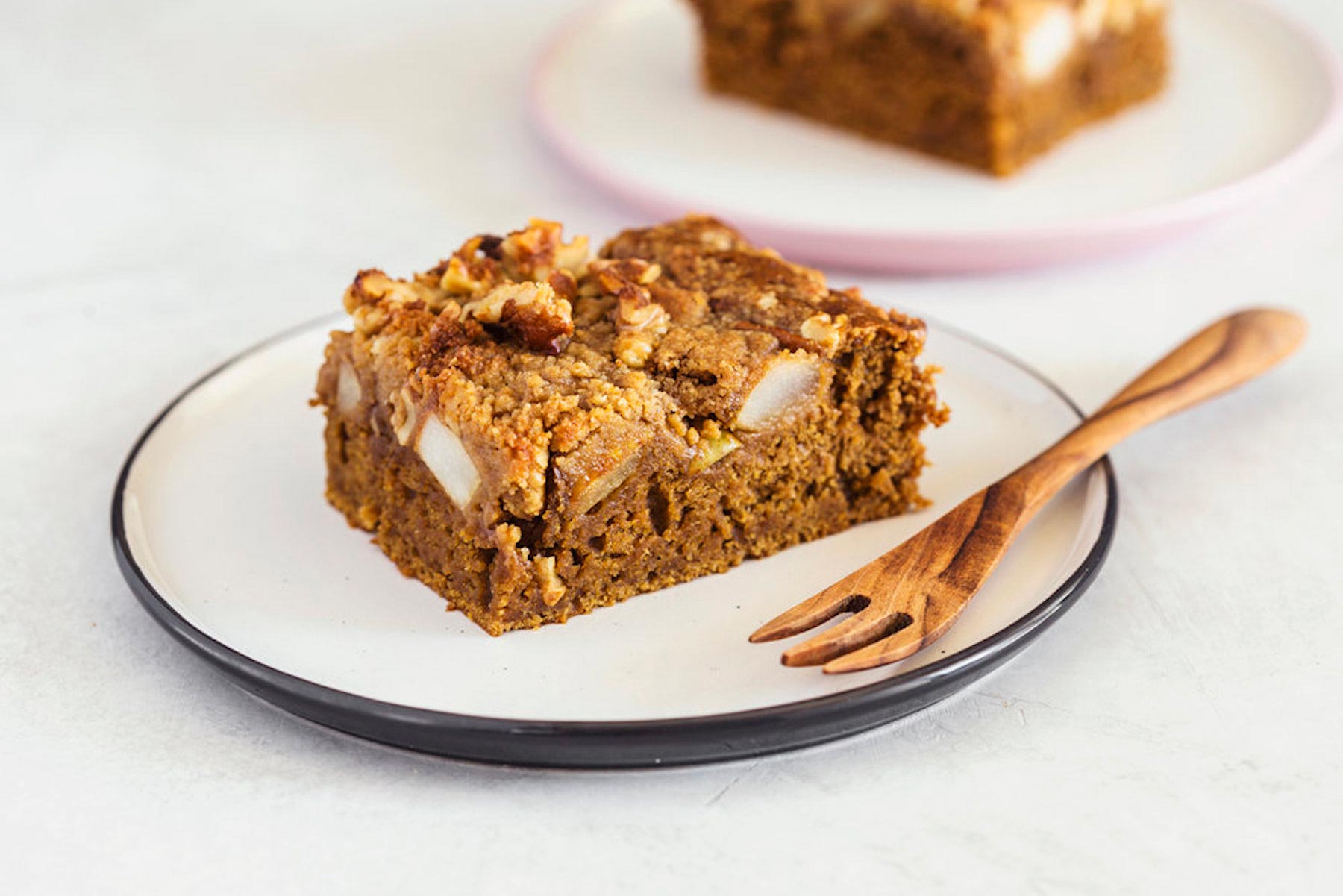
Instant Mashed Potatoes
These starchy tubers are quite dense but they are also sticky and will bind together other ingredients. Don’t use them in recipes where a light texture is required. They will impart their flavor so try them in savoury products like breads.
Mashed Avocado
If mashed until smooth, avocados can add moisture to a recipe. The color and flavor may come through just a little depending on the recipe but can work surprisingly well in brownies and banana bread.
Moong Dal
The much-loved Iranian frittata is classically made using eggs but in fact it can be made using moong dal (green lentils). It is still flavoured with chopped herbs like coriander, dill and parsley, and it tastes so close to the original, that it’s clear eggs are not needed!
Nut Butter
Lovely and sticky, nut butters will do the job of binding. They’ll leave a nutty flavor of course so are delicious in pancakes, cookies and brownies.
Plain Or Vanilla Soy Yogurt
A good replacement where the eggs add moisture and bind. Try soy yogurt in muffins and cakes.
Silken Tofu
This can be quite dense but it is creamy, adds moisture and also binds. It’s particularly good in denser goods like brownies and muffins.
Soy Lecithin
This is often used in commercially baked goods as it is a great binding agent. Add a little soy milk at the same time to increase the moisture in your recipe.
Vinegar And Baking Soda
The combination of apple cider vinegar or white wine vinegar and baking soda works as a leavener – it really froths up! Use it in cakes and brownies.
Water, Oil, And Baking Powder
This simple store cupboard combination works well for scones. Try 1½ tbsp water, 1½ tbsp oil and 1tsp baking powder per egg you are replacing.
Commercial Egg Replacer
There are several egg replacers on the market that can be used in baking. Simply follow the pack instructions for perfect cakes, cookies, brownies and other tasty goods!
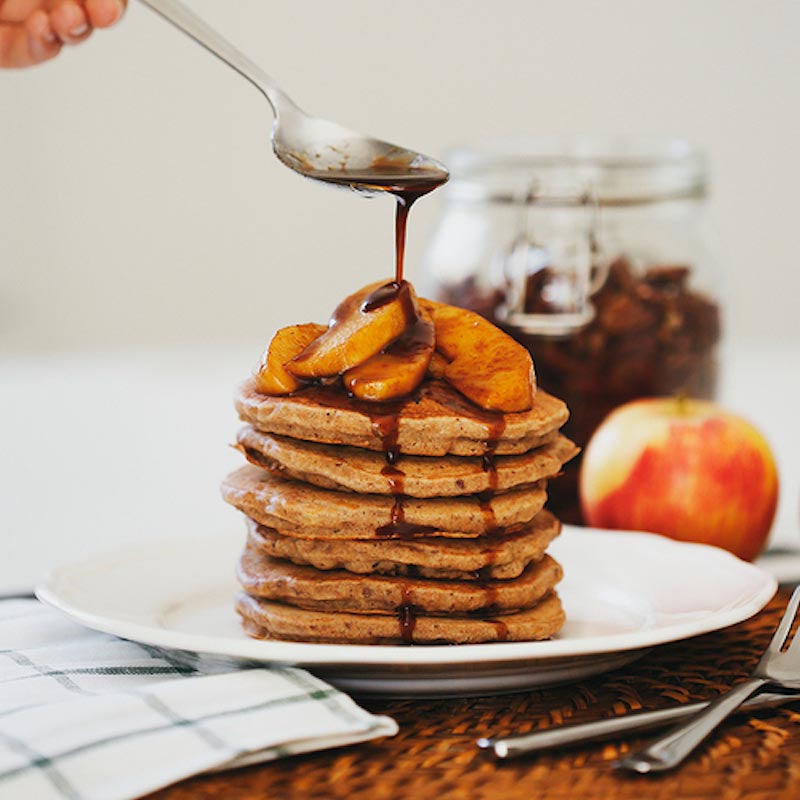
Conclusion
With so many plant-based replacements for eggs available, there is no need to miss out on any of life’s luxuries. In many cases, they are also cheaper and that means you can afford to help yourself to another slice.
Check out some of our favorite egg-free desserts at Loving It Vegan.
